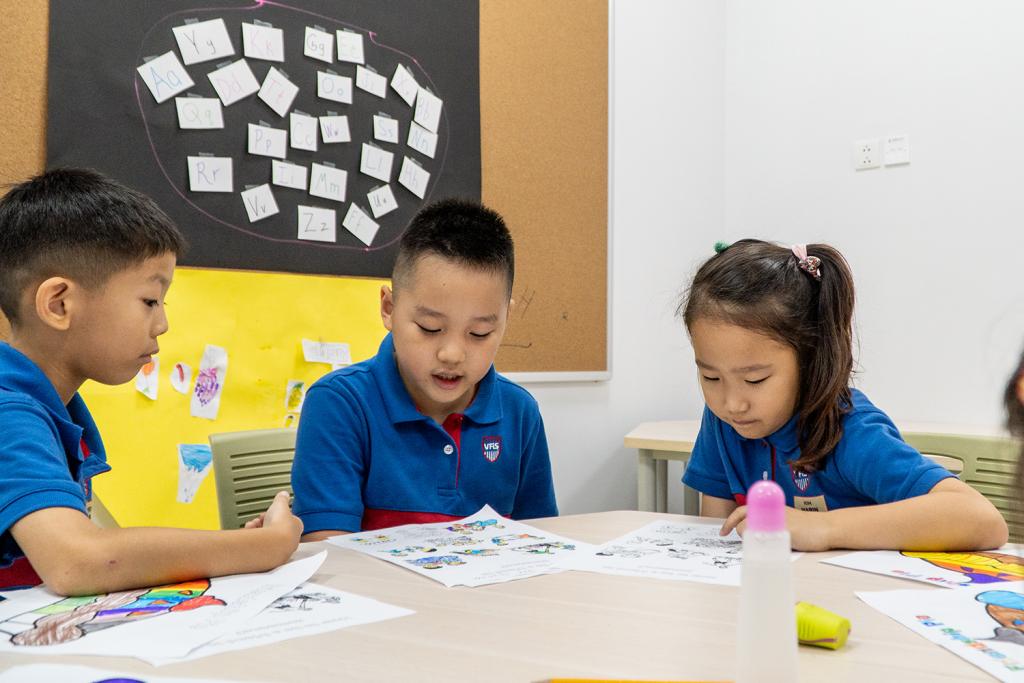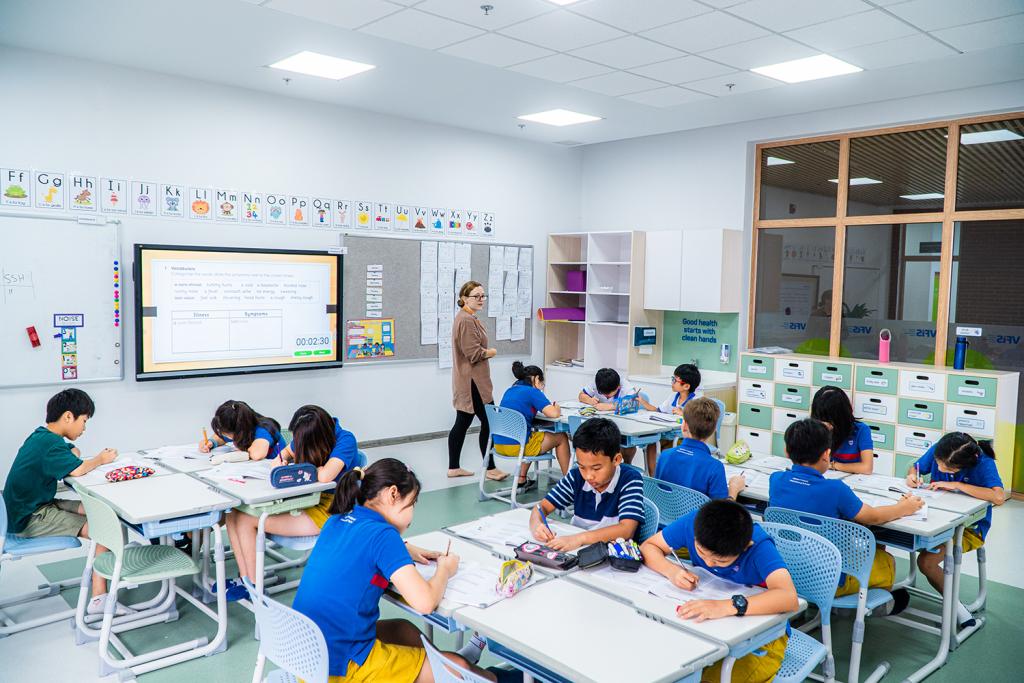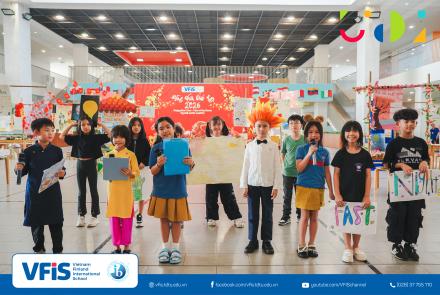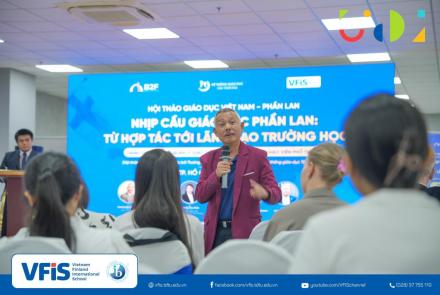Assessment at VFIS
The purpose of assessment is to guide and encourage learning and to develop students’ capability for self-assessment. For the most part, assessment takes place in the interaction between teacher and student. Assessment should be continuous and varied. Experiencing success encourages students to learn more, but mistakes and failures are also an important part of the learning process. Assessment is an integral part of instruction and is used in a manner that promotes
learning and is honest and respectful.
The three general areas assessed by teachers at VFIS are:
- Learning
- Working Skills and Abilities
- Behaviour

1.Learning
Teachers assess the progress and level of achievement of students. The progress and achievement of each student is assessed according to set criteria and objectives for learning in that subject. The progress of a student is compared to the student’s earlier achievement, not to the achievement of other students in the class. Achievement of learning objectives can be demonstrated in a variety of ways and students are given versatile opportunities to demonstrate their knowledge and relevant skills. Teachers guide students to examine their own progress and the quality of their work. In the bilingual programme, periodic testing is required by the Ministry of Education and Training (MOET), but testing is not the only method of assessing students’ progress.
2.Working Skills and Abilities
Assessment in this area is based on goals set for each subject at each grade level. Teachers assess the development of the following skills and abilities:
- to work independently
- to work in pairs or groups
- to plan one’s work
- to manage one’s self
- to communicate and cooperate
- to solve problems
- to act responsibly
- to try one’s best
- to engage in constructive interaction
- to evaluate one’s learning
Teachers guide students to plan their work and use working methods that promote learning.
3. Behaviour
Students are guided to take into consideration other people and the environment. Respect for common rules and jointly agreed upon ways of working is encouraged. The development and importance of good manners is reinforced through daily interaction with peers and adults. Assessment focuses on behaviour that promotes learning in a safe and healthy environment, building each student’s self-esteem. Qualities such as honesty, kindness, enthusiasm, motivation, selfdiscipline, diligence, solidarity, responsibility, confidence and resilience are encouraged. Teachers guide students to work together in a way that supports the learning of the whole class and leads to sustainable development both locally and globally.

In conclusion, when thinking about assessment, it is important to keep in mind the purpose of assessment. It is to guide and encourage students’ learning and self-knowledge. Too often students focus on results, caring only about grades and forgetting that learning is a lifelong process of growth. Each child is at a different stage of development and endowed with different talents and areas of interest. Assessment aims to guide students in developing their strengths and weaknesses so that they can make wise choices and pursue a path in life that is both personally and professionally rewarding.
To experience an inspiring educational environment of Finland in Vietnam, we would like to invite you to attend the ???? SCHOOL TOUR ????. This is also an opportunity to find out the prominence of VFIS curriculum so that you have an additional choice for your children's study.
- Time: 8:00 - 11:00 | 14/12/2019 (Saturday)
- Venue: 01, Street D1, District 7, TP. HCM (inside Ton Duc Thang University - 19, Nguyen Huu Tho, District 7, HCMC)
- The event has a large number of activities, please fill the registration form in the link here
Yours sincerely.
For more information, please contact:
- Admissions & Communications Department
- Hotline: 0903 996 232 - 0944 514 477
- E-mail: info@vfis.tdtu.edu.vn




